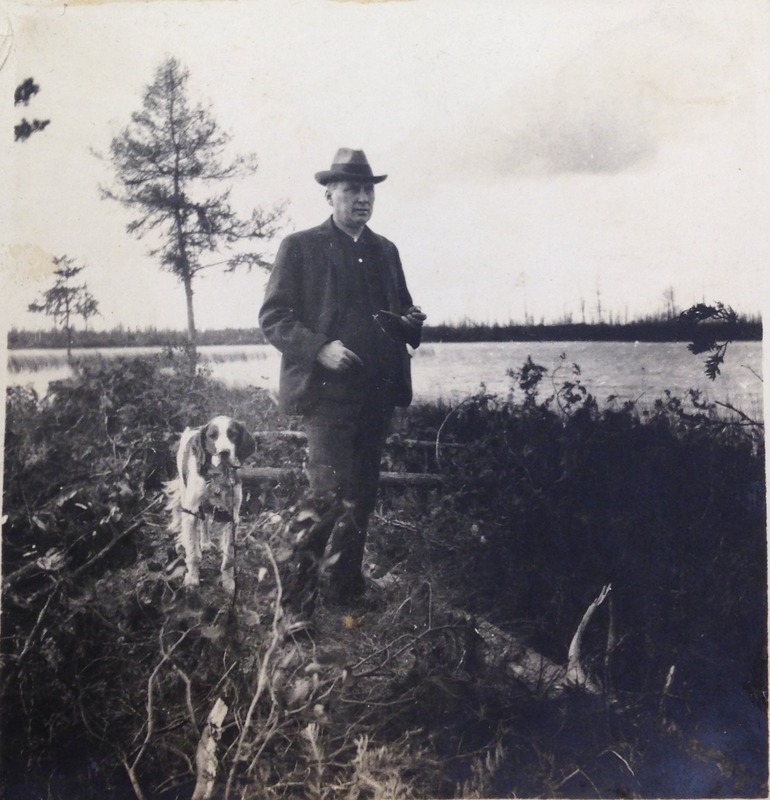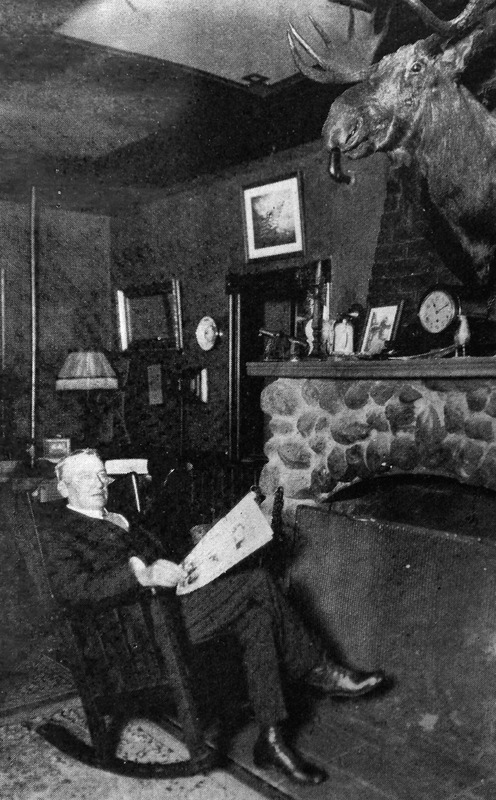Carl E. Schmidt
Carl E. Schmidt ( 1856-1934) was an important figure in the Detroit area. He gained fame and wealth first and foremost through the success of his tanning business and agricultural ventures in northeastern Michigan. As a German-American, Schmidt was a prominent member of the German-American community in Michigan and active in the many German-American societies in Detroit and environs. His early scrapbooks show a treasuring of his “hyphenated” identity, juxtaposing German and American cultural heritage in poetry and images. Mr. Schmidt was a patron and philanthropist of many cultural and civic efforts in Southeastern Michigan. He established a “Carl E Schmidt Fellowship in Tanning” for University students. It is also noteworthy that Carl Schmidt was a close friend of Jo Labadie, after whom the Labadie Collection at the Hatcher Special Collections Library is named.
In the years leading up to America’s entry into the war, Schmidt was an outspoken critic of the prospect of American involvement in that conflict. He was national chairman of the American Independence Conference, a Detroit and Chicago-based organization dedicated to promoting anti-war sentiment. Until 1917, Schmidt made no efforts to hide his German sympathies, donating large sums of money to the German Red Cross and consulate for humanitarian purposes. However, as soon as America declared war, Schmidt donated $5,000 to open a Base Hospital in Detroit and began buying liberty bonds. His philanthropic efforts in service of both sides continued throughout and beyond the war. His letters and scrapbooks show evidence of a considerable change in Schmidt’s attitude towards American politics and national character following the war. The atmosphere of pro-war hysteria, political and ideological conformism and anti-German scapegoating that characterized the war years left Schmidt uncharacteristically cynical and deeply disillusioned with politics, both national and international. His papers also detail some of the personal trauma and attacks he claims to have experienced in retaliation to his pro-German stance.


